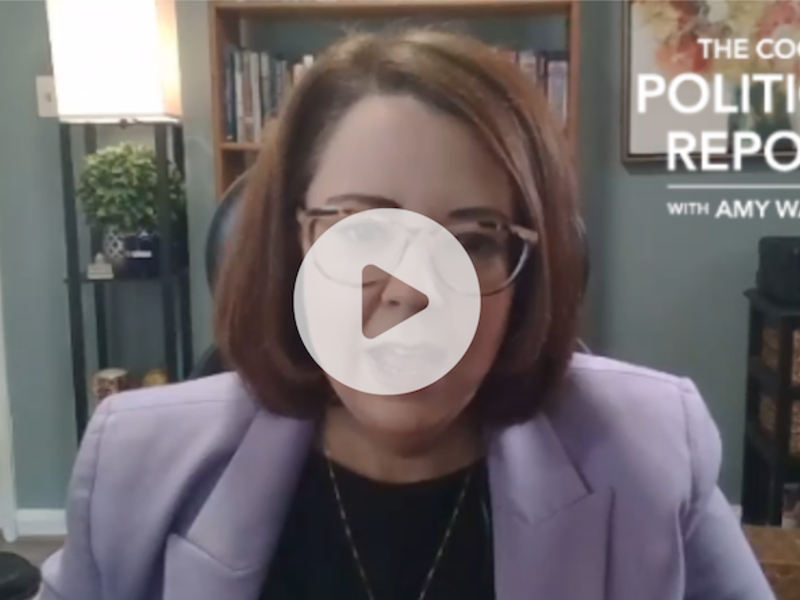
That are we to make of former New York City Mayor Michael Bloomberg’s presidential campaign announcement on Sunday? Will Democrats’ traditional rules of thumb and assumptions be cast aside as they were on the Republican side four years ago?
GOP nominations historically had been hierarchical, going to whoever’s turn it was. Whether it was a current or former vice president, a runner-up in a previous nomination fight, a respected officeholder, or even the son of a former president, the GOP was for presidential elections an establishment-oriented party. Even an outsider-style candidate like Barry Goldwater was still a member of the U.S. Senate.
Beginning in 2015, we saw GOP primary voters behave in highly unconventional ways, smashing the old rulebook. Passing over establishment types like Marco Rubio and John Kasich, they nominated a celebrity reality television host who had long courted controversy like a moth to a flame. The old rules just didn’t apply in 2016.
As we look at the Democratic nomination contenders this cycle, we find ourselves similarly guilty of applying traditional yardsticks in anticipating how each candidate will fare. Elizabeth Warren and Bernie Sanders are widely seen as too liberal and not electable.
At the same time, Joe Biden is perceived as too old, verbose, and verbally accident-prone. He’s been damaged by stories about his son Hunter having taken a board post with a Ukrainian company for which he wasn’t particularly qualified. He’s also had difficulty raising money at the pace that one would expect of a front-runner. With this combination of factors, the perception of Biden’s electability has taken a beating.
Biden, Cory Booker, Kamala Harris, and Amy Klobuchar are all having problems getting traction in the key early states of Iowa and New Hampshire. Since 1972, every Democratic presidential nominee has come in first, second, or third in Iowa, and then first or second in New Hampshire. Michael Bennet and Steve Bullock got into the race so late as to effectively cripple their chances of catching on—a problem that could also nick one of the latest entrants, Deval Patrick. Several of these contenders could be accused of being charismatically challenged as well.
Pete Buttigieg has become a fundraising juggernaut, just as surely as he’s soared in Iowa and New Hampshire polls. But the rap on him is that he’s too young, he’d be better off being the mayor of Indianapolis than South Bend, and that the critical African-American community may be slow to accept a gay candidate. So the conventional wisdom rules him out as well.
Despite his piles of money, Bloomberg has his own issues with minorities, thanks to the “stop and frisk” policing practices he embraced as mayor of New York City (he’s recently apologized). Perhaps more challenging, Bloomberg is an admitted and practicing capitalist (even a billionaire!), at a time when today’s Democratic Party is especially cool toward the wealthy. Let’s just say that there is not much danger of “the Squad” endorsing him. Furthermore, critics insist that a candidate cannot win the nomination after skipping Iowa, New Hampshire, Nevada, and South Carolina, as Bloomberg appears ready to do.
Notice that these arguments, if all taken equally seriously, effectively eliminate every credible Democratic contender. But—profundity alert!—someone has to win the Democratic nomination. Barring still more candidates getting into the race (and it is too late if you aren’t a billionaire), one set of objections will not turn out to be a deal-breaker, but which one? If we only knew.
With the challenges facing each of the contenders, it boosts the likelihood that this race will go much deeper into the nomination calendar, even past the end of March when approximately 70 percent of the delegates will have been chosen. If no one is close to a majority by then, it could be hard for any of them to reach the magic 1,919 pledged delegates needed for a first-ballot convention win. A second ballot would bring in the 758 superdelegates, meaning a candidate would need a majority of 2,258 to win the nomination. (Please don’t use the term “brokered convention”; it has been a long time since either party had any brokers, but a contested convention is certainly plausible.)
If Democrats in 2020 emulate their GOP counterparts in 2016, that means some of the rules of thumb will be at least temporarily nullified and someone who is said to be unable to win the nomination actually will. Thus, we must be careful about which candidates we mentally exclude, and for what reasons.
This story was originally published on nationaljournal.com on November 26, 2019










Subscribe Today
Our subscribers have first access to individual race pages for each House, Senate and Governors race, which will include race ratings (each race is rated on a seven-point scale) and a narrative analysis pertaining to that race.